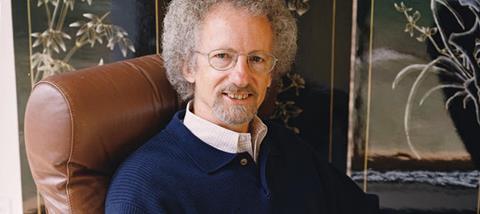
You say that you set out to write a book on the ‘vanishing state of grace’. What do you mean by that?
There’s certainly nothing wrong with God’s grace; that’s not the problem. The issue lies in how we’re dispensing it to the rest of the world. We’re the only way that people are going to experience God’s grace.
In the US, people used to view Christians favourably – respectable, dependable, honest – but now they view them almost with hostility: ‘These people are trying to control my life. They’re hypocrites’. Somehow what we believe is not coming across as good news.
How can we effectively communicate faith in a ‘post-Christian’ society?
We need a new way of communicating our faith because the old way doesn’t work as well as it used to. In 1956, Billy Graham came to Wembley Stadium in London. You had 70,000 people, night after night, and Graham would stand up and say: ‘This is what you should believe. The Bible says…’
People said: ‘OK. I should believe this.’ You try that now. You’re not going to get 70,000 people to listen to a preacher, and if you did they would say, ‘I don’t care. So what if you think that’s true? I see the world differently. I don’t believe the Bible.’ It’s a different world now.
In the book you write about three kinds of Christians who still seem to command respect: pilgrims, artists and activists. Can all Christians become those things?
We are all pilgrims and we should define ourselves as pilgrims. Until recently, the bestselling book in the world – apart from the Bible – was [The] Pilgrim’s Progress. It’s not about a giant superhero of the faith, it’s about an ordinary guy who makes a lot of mistakes, but he keeps on walking and lets God pick him up and dust him off.
We can all be activists in one way or another. I’m not a good activist on the front lines; I sit at home and move electrons around on a screen. But I can participate in acts of mercy by the things that I write about. Other people can do justice by donating money to help a missionary overseas or volunteer to help in a soup kitchen. Activism is a way of acting out what we believe.
Another thing we can all do is foster arts within the Church. The Church used to be the womb of art; it used be the place that nurtured, patronised arts.
I was fascinated by the phrase ‘pain distils life and adds urgency to it’ in your book. Do we need to befriend pain more than we do now?
I like that, befriending pain. Yes we do, because the more you fear pain and the more you’re averse to it, the more you become a victim of it. Throughout the Bible the emphasis is on what pain produces. The Bible doesn’t spend a lot of time talking about why it happens.
In James, 1 Peter, Romans 5 and all the major passages in the New Testament on pain, it’s always forward-looking. It may be bad, it may hurt – by definition – but good things can come out of it.
Philip Yancey talks to Rev Cindy Kent about Vanishing Grace: What Ever Happened to the Good News? (Hodder & Stoughton) on Premier Christian Radio at 2pm on 27th September. The book is out now.



























